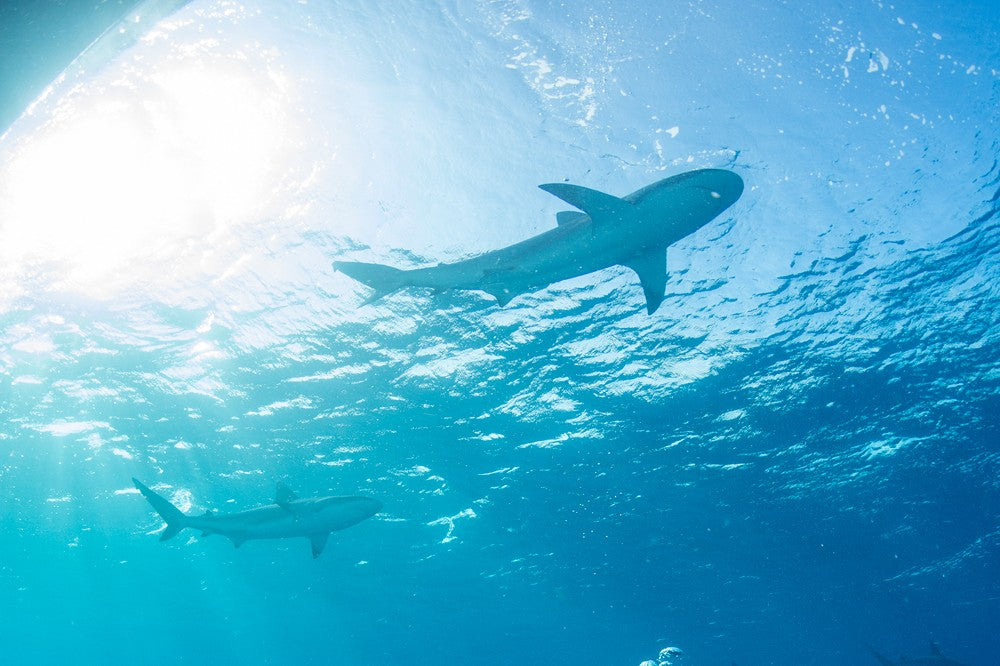The vast expanse of the ocean, teeming with life, has always been a subject of intrigue for humanity. Sharks, as some of the ocean's most formidable inhabitants, have been both a source of fascination and fear. Popular media, driven by sensationalism and dramatic portrayals, has perpetuated myths about sharks, depicting them as ruthless killers lurking in the deep. However, the reality of diving with sharks tells a different and more nuanced story. In this extensive exploration, we'll delve into the myths surrounding diving with sharks, offering a comprehensive look at the reality behind these misunderstood creatures.
Myth 1: Sharks are mindless killing machines
Reality: Let's start by dispelling one of the most pervasive myths about sharks – the notion that they are mindless predators perpetually seeking human flesh. In reality, sharks are highly evolved and intelligent creatures with complex behaviors and social structures. Most species of sharks are not interested in humans as prey and, instead, prefer their natural diet of fish, seals, and other marine animals.
Diving with sharks provides a unique opportunity to witness their grace and beauty in their natural habitat. Many species of sharks are actually shy and elusive, avoiding human interaction whenever possible. Responsible diving practices, such as maintaining a respectful distance and not engaging in aggressive behavior, contribute to a safe and enjoyable experience for both divers and sharks.
The intelligence of sharks is often underestimated. Researchers have discovered that certain species of sharks, such as the great white shark, exhibit problem-solving skills and social behaviors that challenge the stereotype of these creatures as mere killing machines. Diving enthusiasts who have had the privilege of observing sharks in their natural environment often describe them as majestic and awe-inspiring rather than menacing.
Myth 2: All sharks are dangerous
Reality: Another common misconception is the belief that all sharks pose a threat to humans. In reality, there are over 500 different species of sharks, each with its own behavior, habitat, and dietary preferences. The majority of shark species are harmless to humans, and only a small number are responsible for attacks.
Divers who choose to embark on shark encounters are more likely to encounter species like reef sharks, nurse sharks, or whale sharks. These sharks are generally docile and pose little to no threat to humans. Proper education and awareness about the specific shark species present in an area can help dispel the fear associated with diving in shark-infested waters.
It's essential to recognize that the portrayal of sharks as universally dangerous contributes to their negative image and fuels unnecessary fear. Education and awareness campaigns can play a crucial role in shifting public perception and fostering a more accurate understanding of the diverse world of sharks.
Myth 3: Sharks attack without warning
Reality: Contrary to popular belief, sharks do not attack humans without reason or warning. Sharks possess complex sensory systems that help them navigate their environment. Most shark attacks occur due to mistaken identity or defensive reactions rather than unprovoked aggression.
Divers can reduce the risk of negative encounters by understanding shark behavior and adopting best practices during dives. Sharks often give warning signs, such as body language cues or changes in swimming patterns, before they feel the need to defend themselves. Experienced dive guides are trained to recognize these signs and can guide divers to ensure a safe and enjoyable experience.
Research indicates that the majority of shark attacks on humans are instances of mistaken identity. In turbid water or low visibility conditions, a shark may mistake a human for its usual prey, such as a seal or fish. By staying informed about the local marine environment and adhering to safety guidelines, divers can significantly minimize the risk of accidental encounters and contribute to a more harmonious coexistence with sharks.
Myth 4: Shark feeding tours are safe and eco-friendly
Reality: Some operators promote shark feeding tours as a thrilling and safe way to interact with these marine giants. However, shark feeding can have detrimental effects on shark behavior and ecosystem dynamics.
Feeding sharks in the wild alters their natural foraging behaviors and can lead to increased aggression and dependency on humans for food. This practice can disrupt the delicate balance of marine ecosystems and harm the very creatures it aims to showcase. Responsible eco-tourism encourages passive observation and education without compromising the natural behaviors of sharks.
Shark feeding tours, where chum or bait is used to attract sharks, can create associations between humans and food in the minds of these animals. This unnatural behavior can lead to more frequent and aggressive interactions with humans, posing risks to both the sharks and the people involved.
Moreover, the practice of shark feeding can have broader ecological consequences. It may alter the distribution and behavior of other marine species, creating a ripple effect throughout the ecosystem. To preserve the integrity of marine environments and ensure the well-being of sharks, it is crucial to promote responsible and sustainable tourism practices.
Diving with sharks is a thrilling and educational experience that can dispel many of the myths surrounding these misunderstood creatures. By promoting responsible and sustainable practices, divers can contribute to the conservation of sharks and their ecosystems. Sharks play a vital role in maintaining the health of the oceans, and understanding the reality of diving with them is crucial for fostering appreciation and protection of these incredible marine beings.
In conclusion, the next time you think about sharks, remember that they are not the villains of the deep but rather an essential part of the intricate tapestry of marine life. Through education, awareness, and responsible diving practices, we can reshape public perception and work towards a future where sharks are revered and respected as vital contributors to the health and balance of our oceans. So, the next time you find yourself in the presence of these magnificent creatures, take a moment to appreciate the beauty and importance of sharks in our planet's diverse ecosystems.

